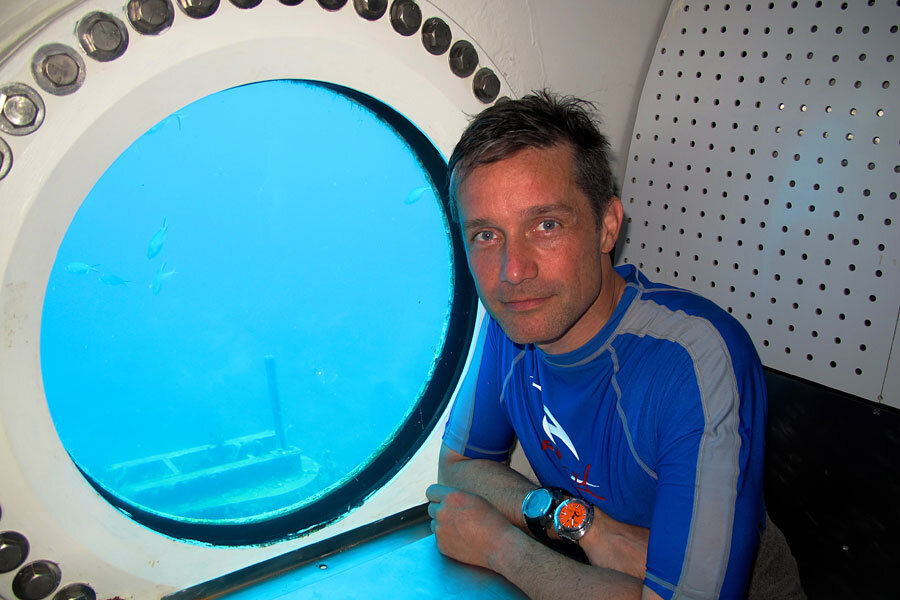Cousteau nears end of month living underwater. What has he learned?
| Aquarius Reef Base, Florida
Fabien Cousteau has a week left in his 31-day underwater living experiment in the Florida Keys, and he's not exactly eager to return to the surface.
"If anything, I'm panicking about the lack of time we have left," he said. "I'm feeling really comfortable and happy down here."
In an interview Tuesday with The Associated Press inside Aquarius Reef Base, 63 feet (19.2 meters) below the surface of the waters off Key Largo, the French oceanographer said the scientists from Florida International University and Northeastern University who joined his "Mission 31" have had unprecedented access to a coral reef.
"The FIU researchers have accomplished more than six months' worth of data gathering in just two weeks because they were here, living under the sea in this undersea habitat," he said. "This highlights how important a habitat is for scientific research as well as outreach."
A team of filmmakers and researchers dove with Cousteau on June 1 to Aquarius. At the mission's mid-point, the FIU researchers traded places with researchers from Northeastern, who will return to land July 2 with Cousteau. They've been studying the effects of climate change and pollutants such as fertilizers on the reef.
Aquarius, federally owned and operated by FIU, allows researchers to dive for hours without needing to return to a boat or go through decompression. The lab — about the size of a school bus and encrusted with coral — includes living quarters for six.
Cousteau conceived of "Mission 31" as an homage to the Conshelf underwater living experiments orchestrated in the 1960s by his grandfather, ocean exploration pioneer Jacques Cousteau.
The three Conshelf missions were partly aimed at exploring the possibilities for colonizing the oceans. After almost a month without sunlight, Cousteau said living underwater long-term was technically possible for humans, but it may not be financially feasible on a large scale.
"If it's for science, education, outreach, filmmaking, those sorts of things, this is a great platform for that," he said.
The mission has been broadcast live online, and it has proceeded without any serious medical or technical problems, aside from an air conditioning failure one night that left the aquanauts sweating as the temperature inside Aquarius rose to 98 degrees with 100 percent humidity.
"It was extraordinarily uncomfortable, like sleeping in the Amazon, minus the bugs," Cousteau said.
There's been so much work to do on the reef that no one has had time to be too homesick or to develop cabin fever, he said.
"Getting out there is so entertaining and so different every time that you'd be hard pressed to think that you've started to go crazy," he said.
___
Kay reported from Miami Beach, Florida.
Copyright 2014 The Associated Press. All rights reserved. This material may not be published, broadcast, rewritten or redistributed.






